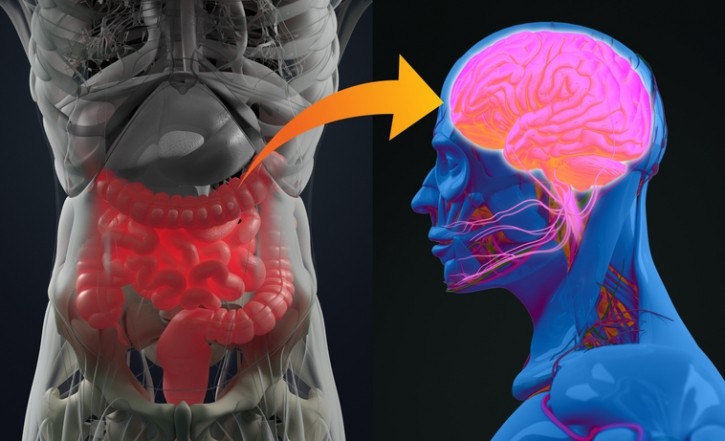Personalised probiotic treatment could support cognitive health in older adults – case study

It showed that the probiotic profiles of those with cognitive impairment significantly differed from those in the cognitively normal group.
Additionally, distinctive Lactobacillus and Bifidobacterium signatures were found in the gut microbiota of older adults, revealing probiotic patterns associated with various population characteristics, microbial compositions, and cognitive functions.
“These insights suggest that tailored probiotic supplements, designed tomicrobiome match individual probiotic profile, could offer an innovative method for addressing age-related diseases and functional declines,” wrote the researchers in Briefings in Bioinformatics.
“Our findings enhance the existing evidence base for probiotic use among older adults, highlighting the opportunity to create more targeted and effective probiotic strategies.”
In older adults, the importance of gut microbiota becomes even more pronounced due to changes in physiology, immunity, and microbiology that accompany ageing. These can impact the diversity and function of the gut microbiota, including shifts in the dominant bacterial species present.
“It is crucial to understand that the efficacy of probiotics depends on precisely matching specific strains to the right conditions and that their integration into the gut varies among individuals due to unique microbial environments. For example, using a probiotic strain already prevalent in an individual may lessen its beneficial impact,” said the researchers.
Therefore, the researchers advocate a tailored approach to probiotic supplementation according to an individual’s gut microbiota composition.
To identify the attributes associated with different probiotic signatures, the researchers analysed the gut microbiota of 297 older adults.
The study was funded by Taiwan National Science and Technology Council, Ministry of Health and Welfare, and the FEMH-NYCU Joint Research Program.
Study participants were aged 50 years and above from communities and hospitals in North Taiwan. They were cognitively normal, had mild cognitive impairment or dementia.
Results from the cognitively normal group
Based on faecal and DNA analysis of 189 cognitively normal samples, researchers identified three signatures each for Lactobacillus and Bifidobacterium, emphasising their relative importance to overall probiotic signature.
The first Lactobacillus Signature (LS1) is characterised by a strong presence of the Ligilactobacillus subtype, which includes species such as Lactobacillus ruminis and Lactobacillus salivarius.
LS2 is dominated by the Limosilactobacillus subtype, including well-documented probiotics such as Lactobacillus fermentum.
LS3 comprises a complex blend of Lactobacillus, Latilactobacillus, and Limosilactobacillus subtypes.
Within the Bifidobacterium Signatures (BS), BS1 combines Bifidobacterium adolescentis and Bifidobacterium bifidum.
BS2 prominently features Bifidobacterium pseudocatenulatum.
BS3 is a composite of Bifidobacterium longum, Bifidobacterium bifidum, and Bifidobacterium dentium.
Five of the Bifidobacterium species were present in more than 20% of the samples, while Lactobacillus species were found in 14.81% of the samples.
On average, over 1% of bacteria were found in three Bifidobacterium species, while the average abundance of the Lactobacillus species was less than 0.1%.
The 189 samples were then put into five clusters – N1, N2, N3, N4, and N5.
N1, N3, and N4 predominantly featured BS1, BS2, and BS3, respectively.
N2 samples had a diverse combination of probiotic signatures, indicating varied probiotic profiles.
N5 samples were predominantly LS1 and BS1.
Clusters N1 and N3 mainly consisted of younger individuals with higher education.
N2 and N5 had a higher percentage of smokers and drinkers, while N1 and N4 individuals predominantly refrained from both.
N5 mainly comprised older men with lower education levels.
“Older adults in cluster N5 scored the lowest on the DSST (Digit Symbol Substitution Test) and VF (Verbal Fluency) tests when compared with clusters N3 and N1, respectively. Brain imaging revealed that participants in clusters N2 and N5 had enlarged ventricles compared with those in cluster N1. Additionally, the AD signature cortices were the thinnest in cluster N5 and the thickest in cluster N2,” said the researchers.
The DSST assesses cognitive function while the VF tests measure the ability to produce words under specific constraints.
Enlarged ventricles and thinning AD signature cortices indicate the loss of brain cells.
Results from the mild cognitive impairment or mild dementia cohort
Applying the same workflow, the researchers identified three signatures each for Lactobacillus (LS) and Bifidobacterium (BS).
LS1, LS2, and LS3 were predominantly Ligilactobacillus, Limosilactobacillus, and Lactobacillus subtypes, respectively.
Bifidobacterium adolescentis, Bifidobacterium pseudocatenulatum, and Bifidobacterium longum were identified as the principal components of BS1, BS2, and BS3, respectively.
This cohort was categorised into four unique clusters based on their LS.
Cluster M1 was predominantly BS, showing an absence of LS.
In cluster M2, LS3 was predominant.
LS2 and LS1 were the defining features of clusters M3 and M4, respectively.
However, due to the small sample size, the only significant finding was results of the Colour Trails Test 1 (CTT1), where the M2 cluster scored the highest at 180.2 points, compared to scores of between 94 to 119 among the other clusters.
The CTT1 is a neuropsychological assessment used to measure cognitive functions, where a higher score indicated better performance.
Opportunities for more targeted probiotics use in older adults
“We used Lactobacillus and Bifidobacterium to identify clusters of older adults with distinct probiotic signatures, and there are differences in demographic characteristics, lifestyles, cognitive functions, and brain structures among clusters,” said the researchers.
Based on these findings, they propose a holistic approach to understanding the gut-brain axis, emphasising the importance of considering both probiotics microbiome composition and broader health indicators in cognitive health research.
“Potential implications include the feasibility of personalised probiotic supplements to address age-related diseases and functional declines,” concluded the researchers.
Source: Briefings in Bioinformatics
DOI: https://doi.org/10.1093/bib/bbae351
“Precision probiotics supplement strategy in aging population based on gut microbiome composition”
Authors: Yi-Fang Chuang, Kang-Chen Fan et al.













